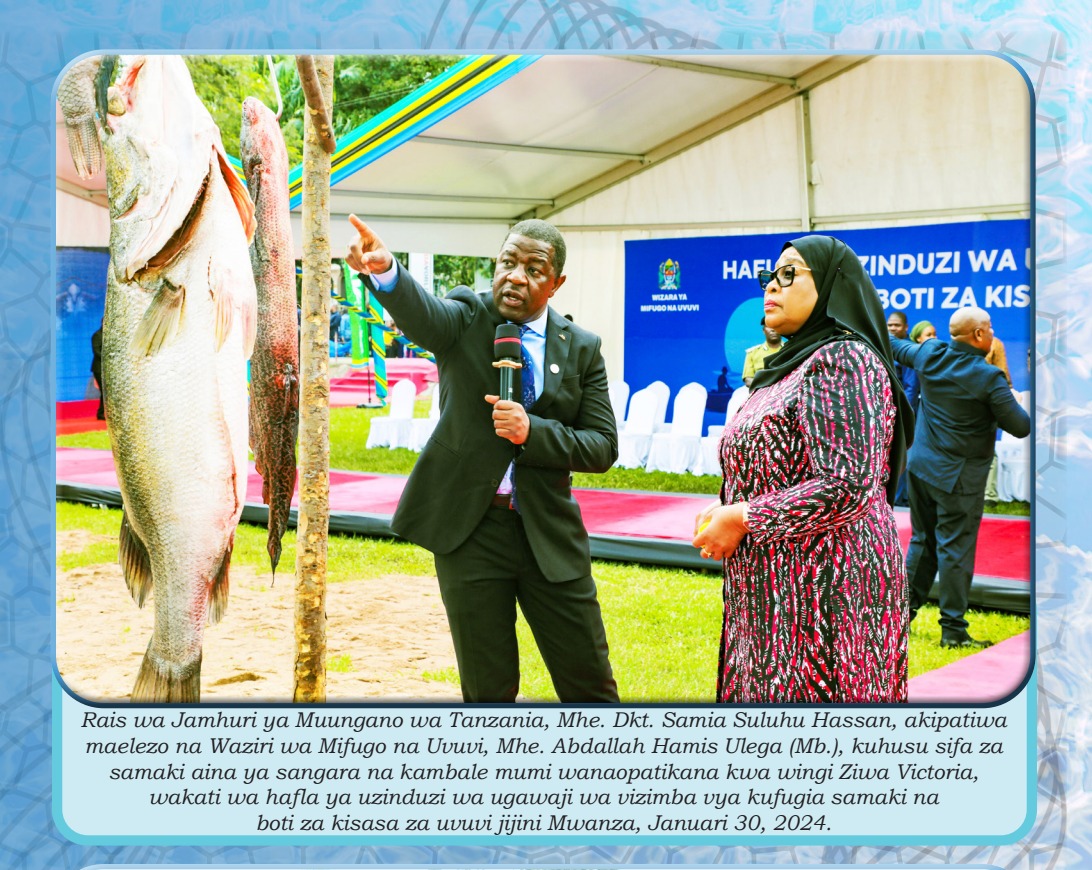In 2024/5 budget speech delivered by Hon. Abdallah Hamis Ulega (MP), Minister of Livestock and Fisheries, the government’s commitment to enhancing animal welfare was prominently featured. Animal welfare is a critical component of the livestock sector, as it directly impacts the health, productivity, and overall well-being of animals. The budget outlines several initiatives aimed at improving animal welfare standards across the country.
One of the key measures highlighted in the budget speech is the establishment of the Nsimbo Livestock Research Center. This center is dedicated to researching and developing best practices for animal welfare. It focuses on various aspects of animal care, including proper feeding, housing, handling, and disease prevention. The center also serves as a training hub for veterinary professionals and livestock farmers, providing them with the knowledge and skills needed to ensure the well-being of their animals. By promoting research and training, the government aims to enhance animal welfare standards and improve the productivity of the livestock sector.
The appointment of animal welfare inspectors is another significant step mentioned in the budget. These inspectors are responsible for monitoring and enforcing animal welfare regulations. They conduct regular inspections of livestock farms, markets, and slaughterhouses to ensure that animals are treated humanely and that their welfare needs are met. The inspectors also provide guidance to farmers and other stakeholders on how to comply with animal welfare standards. By having dedicated personnel focused on animal welfare, the government aims to ensure that livestock are treated with care and respect throughout their lives.
The budget also emphasizes the importance of proper housing and feeding practices for livestock. Adequate housing is crucial for protecting animals from harsh weather conditions and reducing stress, which can negatively impact their health and productivity. The government has allocated funds for the construction and improvement of livestock shelters, ensuring that animals have access to comfortable and safe environments. Additionally, efforts are being made to promote balanced and nutritious feeding practices. This includes the production and distribution of high-quality animal feeds and the establishment of feed storage facilities to ensure a consistent supply of feed throughout the year.
Disease prevention and control are also critical components of the government’s animal welfare strategy. The budget outlines extensive vaccination campaigns aimed at preventing the spread of common livestock diseases. By April 2024, a total of 616,070,986 doses had been used to vaccinate livestock against 13 priority diseases. These vaccination efforts are essential for maintaining the health of livestock and preventing economic losses due to disease outbreaks. The government is also enhancing its disease surveillance and response capabilities to ensure that any outbreaks are quickly detected and contained. By prioritizing disease prevention, the government aims to protect animal health and improve the overall welfare of livestock.
Public awareness and education are vital for promoting animal welfare. The budget includes initiatives to raise awareness about the importance of animal welfare and to educate farmers and the general public on best practices. This involves the dissemination of information through various channels, including workshops, seminars, and media campaigns. By increasing awareness and knowledge, the government aims to foster a culture of care and compassion towards animals, ensuring that their welfare needs are prioritized.
The budget speech also highlights the need for international collaboration in the field of animal welfare. The government plans to work closely with international organizations such as the World Organisation for Animal Health (OIE) and the Food and Agriculture Organization (FAO) to implement global best practices and benefit from international expertise. These collaborations are crucial for addressing transboundary animal welfare issues and ensuring that Tanzania’s livestock sector adheres to international standards. By aligning with global animal welfare standards, the government aims to enhance the reputation and competitiveness of Tanzanian livestock products in international markets.
In addition to improving animal welfare, the government recognizes the economic benefits associated with better animal care. Healthy and well-treated animals are more productive, resulting in higher yields of meat, milk, and other livestock products. Improved animal welfare also reduces the incidence of disease and the associated costs of treatment, leading to greater economic efficiency. By investing in animal welfare, the government aims to enhance the sustainability and profitability of the livestock sector.
In conclusion, the enhancement of animal welfare outlined in the budget speech by Hon. Abdallah Hamis Ulega (MP) reflects the government’s commitment to ensuring the health and productivity of Tanzania’s livestock. Through the establishment of research centers, the appointment of welfare inspectors, improvements in housing and feeding practices, disease prevention efforts, public awareness campaigns, and international collaboration, the government is taking comprehensive steps to promote animal welfare. These initiatives are expected to have a significant positive impact on the livestock sector, contributing to the overall economic growth and development of Tanzania.
